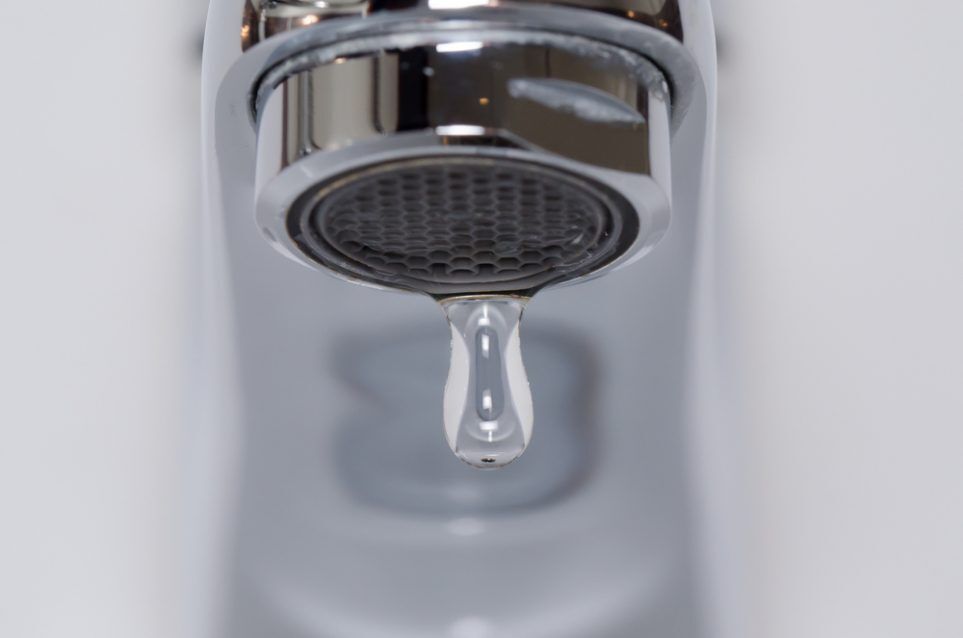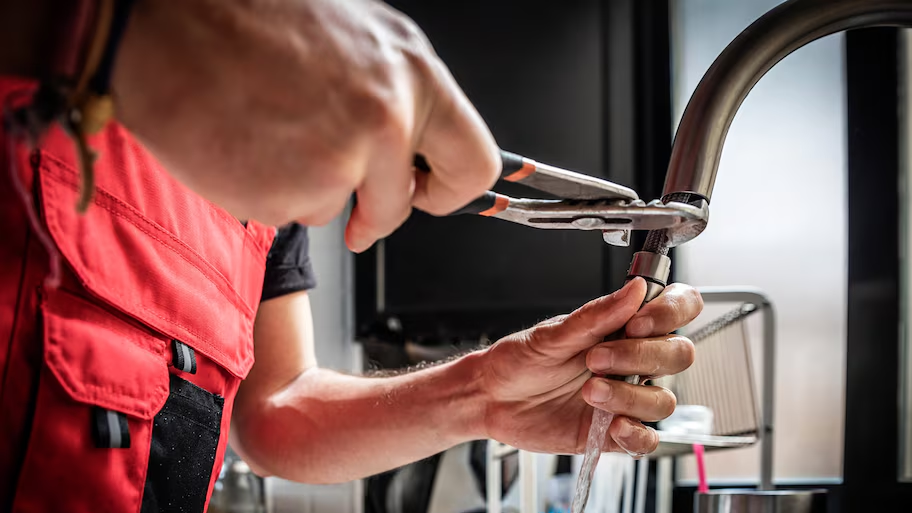Listed here in the next paragraphs you'll find a lot of sound tips all about Why Is It Important To Fix Your Leaking Tap/Faucet?.

Leaking taps may seem like a minor inconvenience, however their influence goes beyond just the inconvenience of the audio. From drainage to sustaining unnecessary financial costs and health and wellness dangers, neglecting a trickling tap can cause different consequences. In this article, we'll look into why it's critical to resolve this common house issue without delay and successfully.
Wastage of Water
Ecological Impact
Leaking faucets contribute significantly to water waste. According to the Epa (EPA), a single faucet leaking at one drip per secondly can waste more than 3,000 gallons of water annually. This not just strains water resources however additionally affects communities and wild animals depending on them.
Financial Expenses
Boosted Water Expenses
Past the ecological influence, trickling taps can blow up water costs considerably. The accumulated wastage over time translates into greater energy costs, which might have been avoided with timely repair work.
Potential Building Damages
Moreover, extended trickling can result in damage to components and surface areas surrounding the faucet. Water build-up can create discoloration, deterioration, and even structural problems if left neglected, causing additional repair costs.
Health and wellness Worries
Mold And Mildew and Mold Development
The continuous existence of wetness from a leaking faucet develops a perfect environment for mold and mildew development. These fungis not only endanger indoor air quality yet also posture wellness threats, especially for people with breathing problems or allergies.
Waterborne Illness
Stationary water in trickling faucets can end up being a breeding place for microorganisms and other microorganisms, boosting the threat of waterborne conditions. Contaminants such as Legionella bacteria flourish in stagnant water, potentially causing severe ailments when consumed or inhaled.
DIY vs. Professional Repair
Advantages and disadvantages of DIY Repair Work
While some may try to deal with a trickling faucet themselves, DIY repairs feature their very own collection of difficulties. Without proper expertise and tools, DIY efforts can worsen the issue or lead to insufficient repair services, extending the trouble.
Benefits of Hiring an Expert Plumber
Working with a specialist plumber guarantees that the underlying reason for the trickling tap is dealt with properly. Plumbers possess the know-how and devices to detect and repair faucet problems successfully, saving time and reducing the threat of more damage.
Step-by-Step Guide to Dealing With a Dripping Faucet
Tools Required
Before attempting to repair a leaking faucet, collect the required devices, consisting of a flexible wrench, screwdrivers, substitute components (such as washing machines or cartridges), and plumber's tape.
Usual Tap Issues and Their Solutions
Recognize the kind of faucet and the particular issue causing the drip. Typical issues include worn-out washing machines, rusty valve seats, or faulty O-rings. Describe maker directions or online tutorials for detailed assistance on repair work.
Safety nets
Routine Upkeep Tips
To prevent trickling faucets, execute routine upkeep such as cleaning aerators, evaluating for leaks, and changing worn-out parts promptly. Furthermore, take into consideration setting up water-saving tools or upgrading to a lot more efficient fixtures.
Value of Prompt Repairs
Dealing with trickling taps as quickly as they're noticed avoids additional water wastefulness and prospective damages, inevitably conserving both water and cash over time.
Effect On Residential Property Value
Assumption of Well-Maintained Residential Property
Maintaining a residential or commercial property in good condition, consisting of dealing with upkeep problems like trickling taps, enhances its regarded value and charm amongst potential customers or tenants.
Impact on Resale Worth
Residences with properly maintained plumbing fixtures, including taps, command greater resale values in the realty market. Resolving dripping faucets can contribute to a positive impact throughout property evaluations and settlements.
Ecological Duty
Specific Payment to Preservation
Taking duty for dealing with dripping faucets aligns with broader efforts towards water preservation and ecological sustainability. Every person's actions jointly make a considerable influence on protecting precious sources.
Lasting Living Practices
By focusing on timely repair services and adopting water-saving habits, people contribute to sustainable living methods that profit both existing and future generations.
Verdict
Addressing a leaking faucet exceeds mere benefit; it's a crucial step towards preserving water, reducing financial expenses, and securing wellness and home. Whether with DIY fixings or professional support, doing something about it to take care of leaking faucets is a small yet impactful means to promote accountable stewardship of resources and contribute to a healthier, more lasting future.
How to Fix a Leaky Faucet: Step-by-Step Repair Guide
A leaky faucet may seem like a simple annoyance, but if it's not fixed promptly, that leak could cost hundreds to potentially thousands. From water damage to mold, mildew, and high water bills, even a tiny leak can be catastrophic if left unattended. Damage like this can even affect the overall value of your home, so it's important to take the right approach for leaky faucet repair. You may need the help of a plumber in some cases, but we've got a few tips you can try on how to fix a leaky faucet before calling the pros.
Four Faucet Types
When you're learning how to fix a leaky faucet, the first step is knowing what kind of faucet you're working with! There are four common types.
Cartridge Faucets
Cartridge faucets come in one- or two-handled varieties. In one-handled cartridge faucets, hot and cold water combines in a single cartridge. In the two-handled versions, hot and cold water are controlled separately and mixed in the faucet.
Ball Faucets
Ball faucets have a single lever you push up and down to adjust the pressure and rotate to change the temperature. A slotted metal ball controls the amount of water allowed into the spout.
Compression Washer Faucets
They're the oldest type of faucet, but they're still used in many homes — especially older ones. Compression faucets have two separate handles that, when turned, raise or lower the washer that seals a water valve. This valve stops water from flowing through the faucet when it is turned off.
Disc Faucets
Disc faucets rarely need to be repaired due to their maintenance-free design. The water flow is controlled by two discs — the upper one raises and lowers against a fixed lower disc, creating a watertight seal. If your disc faucet starts leaking, you may need to replace the seals or clean residue buildup from the inlets.
Fixing a Leaky Faucet
Step 1: Turn Off the Water
Whether you're learning how to fix a leaky bathtub faucet or how to fix a leaky kitchen faucet, always turn off the water supply to your working area when you're fixing a leak. The last thing you want is a flood added to your list of things to fix.
Look for the shutoff valves below your sink or around the tub and turn them clockwise to stop the water flow. If your faucet doesn't have shutoff valves, you may need to turn off the water for the whole house. Check to make sure it's off by turning the faucet on. If nothing comes out, you're ready to start the repair.
Step 2: Take Apart the Faucet
How you disassemble your faucet depends on the type of fixture you have. You can use a flathead screwdriver to remove the caps on top of the handle or handles for cartridge and compression faucets. Inside, you should see handle screws. Unscrew these with a screwdriver to remove the handle.
Disc- and ball-style faucets will typically have an inlet screw near the handle, and removing that will reveal the interior of the faucet.
Detach the Valve Stem
For cartridge- and compression-style faucets, you'll see the inner valve stem or cartridge once you remove the faucet handles. If you have a compression faucet, unscrew the brass valve stem. If you have a cartridge faucet, pull out the cartridge. If your cartridge has been in place for a while, it may require some tools or extra force to remove it due to mineral deposits.
Examine and Replace Parts
Once you've removed the parts, check them out to confirm what needs to be replaced. You may see corroded rubber washers, O-rings, stems, or cartridges. On a ball-style faucet, check the seats and springs for damage.
If you need to repair a leaky disc faucet, check the inlet and seals on the lower disc.
Once you determine what parts must be replaced, visit your local hardware store. Bring the damaged parts with you to ensure you can purchase the correct components to replace them.
Clean Valves and Faucet Cavity
If you've removed a stem or cartridge, you may notice mineral buildup in the faucet's threads. Use white vinegar to clean the valve seat by soaking it for a few minutes, then scrub it away with a soft toothbrush and rinse with warm water. You can also clean the interior of the faucet in the same way.
Reassemble the Faucet
Once your faucet is cleaned and the required parts have been replaced, it's time to reassemble it. Put the pieces back together and slowly turn the water supply back on. Doing this slowly is crucial because too much initial water pressure can damage the new hardware you've just installed.
https://homewarranty.firstam.com/blog/how-to-fix-leaky-faucet

I am very enthusiastic about How to Fix a Dripping or Leaky Faucet and I hope you appreciated the entire post. Enjoyed our post? Please quickly share it. Help other people discover it. Thanks so much for your time spent reading it.